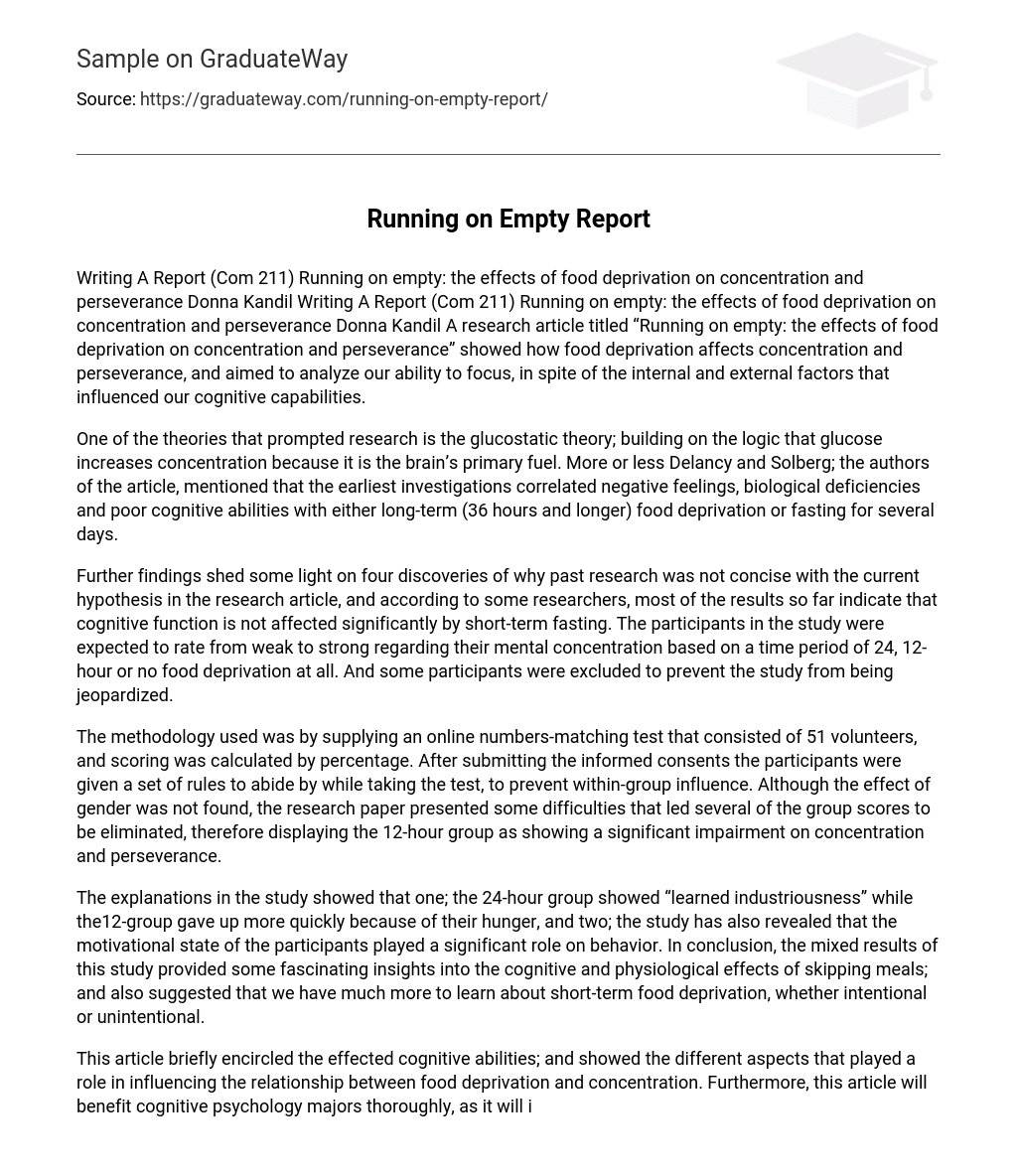Writing A Report (Com 211) Running on empty: the effects of food deprivation on concentration and perseverance Donna Kandil Writing A Report (Com 211) Running on empty: the effects of food deprivation on concentration and perseverance Donna Kandil A research article titled “Running on empty: the effects of food deprivation on concentration and perseverance” showed how food deprivation affects concentration and perseverance, and aimed to analyze our ability to focus, in spite of the internal and external factors that influenced our cognitive capabilities.
One of the theories that prompted research is the glucostatic theory; building on the logic that glucose increases concentration because it is the brain’s primary fuel. More or less Delancy and Solberg; the authors of the article, mentioned that the earliest investigations correlated negative feelings, biological deficiencies and poor cognitive abilities with either long-term (36 hours and longer) food deprivation or fasting for several days.
Further findings shed some light on four discoveries of why past research was not concise with the current hypothesis in the research article, and according to some researchers, most of the results so far indicate that cognitive function is not affected significantly by short-term fasting. The participants in the study were expected to rate from weak to strong regarding their mental concentration based on a time period of 24, 12-hour or no food deprivation at all. And some participants were excluded to prevent the study from being jeopardized.
The methodology used was by supplying an online numbers-matching test that consisted of 51 volunteers, and scoring was calculated by percentage. After submitting the informed consents the participants were given a set of rules to abide by while taking the test, to prevent within-group influence. Although the effect of gender was not found, the research paper presented some difficulties that led several of the group scores to be eliminated, therefore displaying the 12-hour group as showing a significant impairment on concentration and perseverance.
The explanations in the study showed that one; the 24-hour group showed “learned industriousness” while the12-group gave up more quickly because of their hunger, and two; the study has also revealed that the motivational state of the participants played a significant role on behavior. In conclusion, the mixed results of this study provided some fascinating insights into the cognitive and physiological effects of skipping meals; and also suggested that we have much more to learn about short-term food deprivation, whether intentional or unintentional.
This article briefly encircled the effected cognitive abilities; and showed the different aspects that played a role in influencing the relationship between food deprivation and concentration. Furthermore, this article will benefit cognitive psychology majors thoroughly, as it will increase their knowledge and introduce them to the many aspects of the simplified effects of food shortage and how it differs according to the time span you subject yourself to.
In light of the mentioned conclusion, I recommend others to read this article, as it was very concise and orderly, also the methodology used was efficiently useful and can be used for future research. The results proved the study to be valid and reliable, covering the participants who partook in the research, as well as the ones who failed. I also recommend the authors to include more about the impact of food deprivation on the whole spectrum of mental cognition in specific detail, and to have included the many aspects that play a role in cognition influence; i. e. the biological, emotional and psychological sides.





